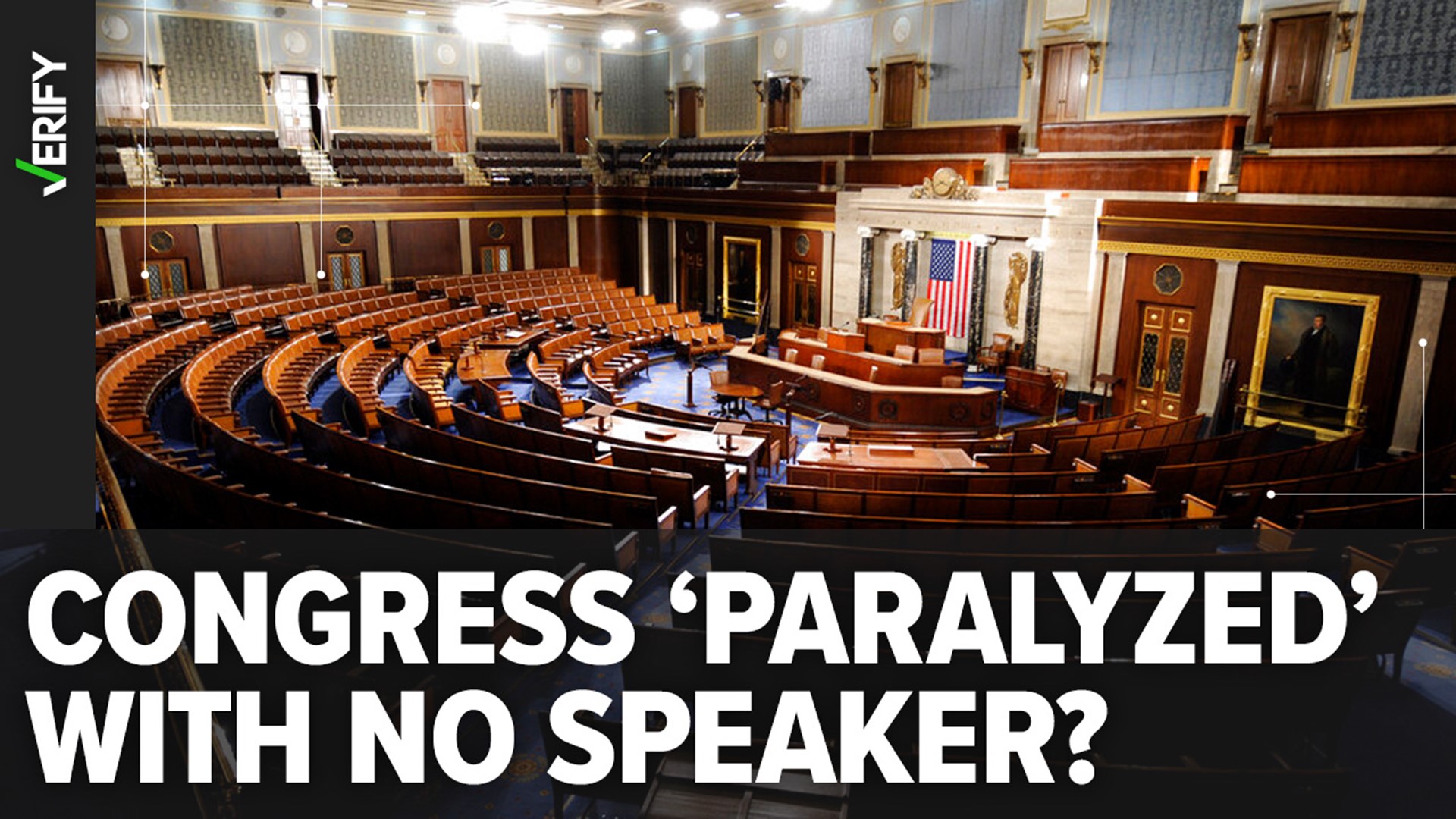The House voted on Tuesday, Oct. 3 to remove Rep. Kevin McCarthy (R-Calif.) from his speaker role.
North Carolina Republican Rep. Patrick McHenry is now essentially serving as the active speaker, which is officially known as the speaker pro tempore, until the House elects a new leader.
The news of McCarthy’s ouster has left some people online wondering whether legislation is now “at a standstill” without an elected speaker. John also asked VERIFY what an interim speaker of the House is able to do.
THE QUESTION
Can the House pass legislation without an elected speaker?
THE SOURCES
- U.S. House Rules
- Benjamin Barton, a law professor at the University of Tennessee
- Joshua Huder, Ph.D., senior fellow at Georgetown University’s Government Affairs Institute
- Matt Glassman, Ph.D., senior fellow at Georgetown’s Government Affairs Institute
THE ANSWER
The House rules that apply to the temporary speaker are ambiguous and untested, since McCarthy is the first speaker to be removed.
WHAT WE FOUND
Under House rules, McCarthy was required to submit a confidential list of replacements in case he became unable to fulfill his duties. McHenry’s name was at the top of that list to serve as speaker pro tempore. =
But it’s unclear whether the House can pass legislation without an elected speaker in place.
Section 1, Clause 8 of the House of Representatives’ rules says the speaker pro tempore will serve in the role until a new speaker is elected. But the rules are vague about the temporary speaker’s authority.
“Pending such election the Member acting as Speaker pro tempore may exercise such authorities of the Office of Speaker as may be necessary and appropriate to that end,” the rules say.
The rules don’t define what “necessary and appropriate” means, or even what “to that end” means, leaving the answer open to interpretation.
There isn’t precedent, either, since McCarthy is the first speaker of the House to be removed from the post.
Several experts who spoke with VERIFY had differing opinions.
Joshua Huder, a senior fellow at Georgetown University’s Government Affairs Institute, said if the majority “wants to pass legislation, it can do so,” even if a speaker pro tempore is presiding over the House.
But according to University of Tennessee law professor Benjamin Barton’s interpretation, Congress can’t take any action until a new speaker, or speaker pro tempore, is elected. He did acknowledge the rules could change, as he said “we’re in uncharted territory.”
Matt Glassman, another senior fellow with Georgetown University’s Government Affairs Institute, also explained in a thread on X that the rules are unclear about whether the House can take up legislation without an elected speaker.

